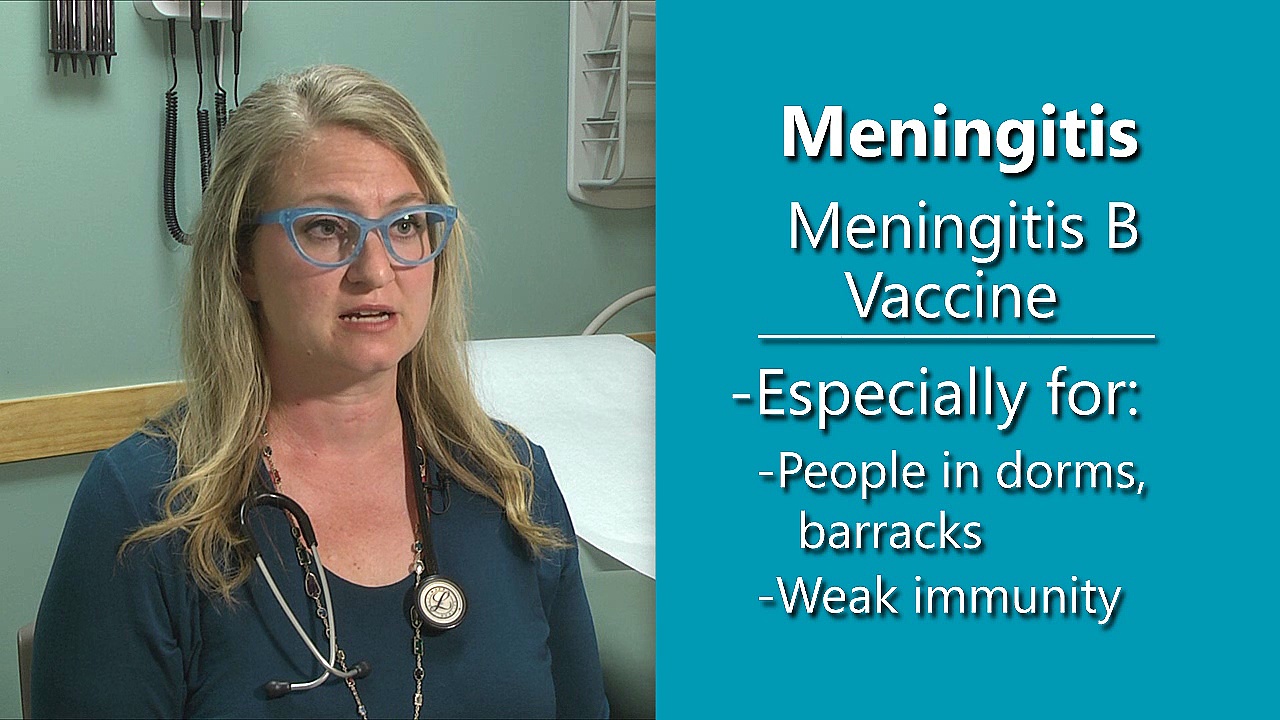June 3, 2019
The bottom line: Meningitis is a serious infection of the brain and spinal cord. The “B” strain of the bacteria can cause serious outbreaks, leaving those affected with brain damage, hearing loss, and even death. A vaccine can prevent this illness.

It travels fast and can leave its victims with permanent complications or death within a matter of hours. Meningococcal disease is serious – and preventable – according to the Texas Medical Association’s (TMA’s) Texas Medicine magazine.
Meningococcal disease is caused by a specific bacteria called Neisseria meningitidis. Multiple types – also called serogroups or strains – of the bacteria exist. The B strain causes most cases of meningococcal disease in adolescents and young adults, and can lead to outbreaks of meningitis (infection of the lining of the brain and spinal cord).
“Meningococcal B symptoms can come on fast,” said Maria Monge, MD, an adolescent medicine physician in Austin and chair of TMA’s Committee on Child and Adolescent Health. “A sudden onset of fever, headache, and stiff neck are common.” Dr. Monge discussed Meningococcal B in-depth in a TMA video.
Other symptoms can include nausea, vomiting, and confusion. Sometimes a patient might develop a dark purplish rash, said Dr. Monge. The disease is spread by sharing a drink or kissing, those kinds of activities, she said. People living in close quarters like college dormitories or military barracks are most at risk of spreading the disease.
Even with treatment, one in 10 people who get the disease will die and two in 10 will suffer serious and permanent complications, according to the National Foundation for Infectious Diseases. In addition to the threat of death, lasting effects include learning difficulties, hearing loss, or limb amputation.
Meningococcal B is responsible for more than half of all meningitis cases, although overall meningococcal disease remains rare in the U.S. Between 2013 and 2018, the Centers for Disease Control and Prevention (CDC) reported 10 meningococcal B outbreaks at universities located in seven states, which caused 39 cases and two deaths.
The CDC recommends anyone age 10 or older at risk for meningococcal disease get vaccinated against serogroup B, particularly those who are at high risk or have a weakened immune system. People living in very close quarters like dorms or barracks should get vaccinated. The CDC recommends the shots be given between the ages of 16 and 18, and more than one dose is recommended for best protection.
Different meningococcal vaccines, recommended for all adolescents and teens, help protect against serogroups A, C, W, and Y.
“Meningococcal B vaccination can be confusing because it is not recommended for all teenagers like the other meningococcal shots,” Dr. Monge said. “Parents may think their child is protected against B because he or she received the routinely recommended vaccination for some strains of meningococcal disease.”
That’s why Dr. Monge recommends parents and young adults talk to their physicians to see if they need this shot or have questions about the disease.
“The best way to prevent meningococcal B infection is with a vaccination,” Dr. Monge said, “and we physicians want to make sure people who are at higher risk do just that.”
This release is part of a monthly TMA series highlighting contagious diseases that childhood and adult vaccinations can prevent. Some diseases covered thus far are:
TMA designed the series to inform patients of the facts about these diseases and to help them understand the benefits of vaccinations to prevent illness. Visit the TMA website to see efforts to raise immunization awareness and how funding is used to increase vaccination rates.
TMA is the largest state medical society in the nation, representing nearly 53,000 physician and medical student members. It is located in Austin and has 110 component county medical societies around the state. TMA’s key objective since 1853 is to improve the health of all Texans.
--30--
TMA Contacts: Brent Annear (512) 370-1381; cell: (512) 656-7320; email: brent.annear[at]texmed[dot]org
Marcus Cooper (512) 370-1382; cell: (512) 650-5336; email: marcus.cooper[at]texmed[dot]org
Connect with TMA on Twitter, Facebook, and Instagram.
Check out MeAndMyDoctor.com for interesting and timely news on health care issues and policy.